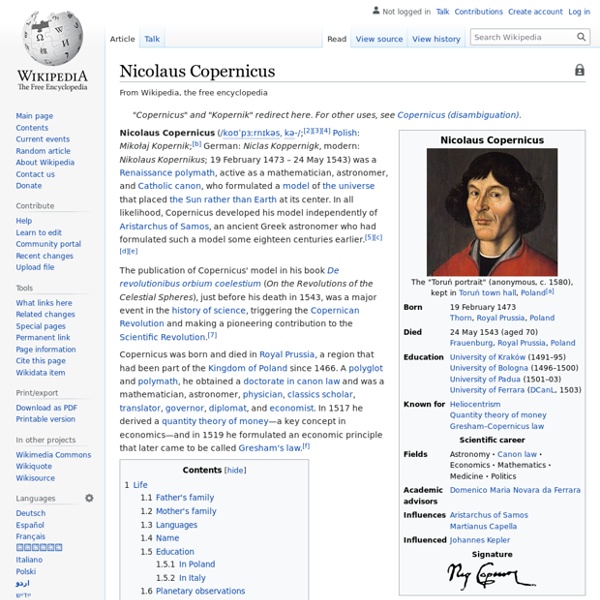Esse quam videri
Esse quam videri is a Latin phrase meaning "To be, rather than to seem". It and variants have been used as a motto by a number of different groups. The form Esse, non Videri ("To be, not to be seen") is the Wallenberg family motto.[1] History[edit]
Ipse dixit
The Roman politician Marcus Tullius Cicero coined the phrase ipse dixit, which translates from the Latin as, "he said it himself" Ipse dixit (Latin for "he said it himself") is an assertion without proof; or a dogmatic expression of opinion.[1] The fallacy of defending a proposition by baldly asserting that it is "just how it is" distorts the argument by opting out of it entirely: the claimant declares an issue to be intrinsic, and not changeable.[2] History[edit] The Latin form of the expression comes from the Roman orator and philosopher Marcus Tullius Cicero (106–43 BC) in his theological studies De Natura Deorum (On the Nature of the Gods) and is his translation of the Greek expression (with the identical meaning) autòs épha (αὐτὸς ἔφα), an argument from authority made by the disciples of Pythagoras when appealing to the pronouncements of the master rather than to reason or evidence.[3] Ipse-dixitism[edit]
List of ancient Romans
Wikimedia list article This an alphabetical List of ancient Romans. These include citizens of ancient Rome remembered in history.
Lorem ipsum
Placeholder text used in publishing and graphic design Using lorem ipsum to focus attention on graphic elements in a webpage design proposal Lorem ipsum is typically a corrupted version of De finibus bonorum et malorum, a first-century BCE text by Cicero, with words altered, added, and removed to make it nonsensical, improper Latin. Example text[edit] A common form of lorem ipsum reads:
Marcantonius Majoragio
Marcantonius Majoragio (1514–1555[1]) was a Christian within Italy during the Renaissance period.[2][3][1] Majoragio was born Maria Antonio Conti in a place in the proximity of Milan in Italy, known as Majoragio.[3] Majoragio was professor for a time at Milan, and a scholar who was known to have studied after the ancient Roman philosopher and orator Cicero. During 1542 he attended lectures held within Ferrara, these lectures were performed by Maggi on the subject of philosophy, and by Alciati on jurisprudence.
Marcus Tullius Tiro
Marcus Tullius Tiro (died c. 4 BC) was first a slave, then a freedman of Cicero. He is frequently mentioned in Cicero's letters. After Cicero's death he published his former master's collected works.
Marius Nizolius
Marius Nizolius (Italian: Mario Nizolio; 1498–1576) was an Italian humanist scholar, known as a proponent of Cicero. He considered rhetoric to be the central intellectual discipline, slighting other aspects of the philosophical tradition.[1][2] He is described by Michael R. Allen as the heir to the oratorical vision of Lorenzo Valla, and a better nominalist.[3] Life[edit] He was born in Brescello.
O tempora o mores!
Exclamation by Cicero, most famously in first Catilinarian oration O tempora o mores is a Latin phrase that translates literally as Oh the times! Oh the customs! but more accurately as Oh what times! Oh what customs![1] It is often printed as O tempora!
Otium
Leisure time in which a person can enjoy eating, playing, resting, contemplation and academic endeavors Getty Villa representing life at otium (leisure) of an ancient Roman villa Otium, a Latin abstract term, has a variety of meanings, including leisure time in which a person can enjoy eating, playing, resting, contemplation and academic endeavors. It sometimes, but not always, relates to a time in a person's retirement after previous service to the public or private sector, opposing "active public life". Otium can be a temporary time of leisure, that is sporadic.
Quintus Tullius Cicero
Quintus Tullius Cicero ( SISS-ə-roh, Classical Latin: [ˈkɪkɛroː]; 102 BC – 43 BC) was a Roman statesman and military leader, the younger brother of Marcus Tullius Cicero. He was born into a family of the equestrian order, as the son of a wealthy landowner in Arpinum, some 100 kilometres south-east of Rome. Biography[edit] During the Second Triumvirate, when the Roman Republic was again in civil war, Quintus, his son, and his brother, were all proscribed.
Servius Sulpicius Rufus
Servius Sulpicius Rufus (c. 106 BC – 43 BC), was a Roman orator and jurist and the father of the poet Sulpicia, the only Roman female poet whose poetry survives. He was consul in 51 BC.[1] Biography[edit] Early life[edit] He studied rhetoric with Cicero, accompanying him to Rhodes in 78 BC, though Sulpicius decided subsequently to pursue legal studies.
Tempest in a teapot
Tempest in a teapot (American English), or storm in a teacup (British English), is an idiom meaning a small event that has been exaggerated out of proportion. There are also lesser known or earlier variants, such as tempest in a teacup, storm in a cream bowl, tempest in a glass of water, storm in a wash-hand basin,[1] and storm in a glass of water. Etymology[edit]
Titus Pomponius Atticus
Close friends since childhood, Cicero dedicated his work, Laelius de Amicitia (Latin for Treatises on Friendship), to Atticus. Their correspondence, often written in subtle code to disguise their political observations, is preserved in Epistulae ad Atticum (Letters to Atticus) compiled by Tiro, Cicero's slave (later his freedman) and personal secretary. Biography[edit] Early life[edit] Career[edit] Atticus inherited family money, which he successfully invested in real estate, enhancing his wealth.
Translation
King Charles V the Wise commissions a translation of Aristotle. First square shows him ordering the translation; second square, the translation being made. Third and fourth squares show the finished translation being brought to, and then presented to, the King. A translator always risks inadvertently introducing source-language words, grammar, or syntax into the target-language rendering. On the other hand, such "spill-overs" have sometimes imported useful source-language calques and loanwords that have enriched target languages. Translators, including early translators of sacred texts, have helped shape the very languages into which they have translated.[2]



